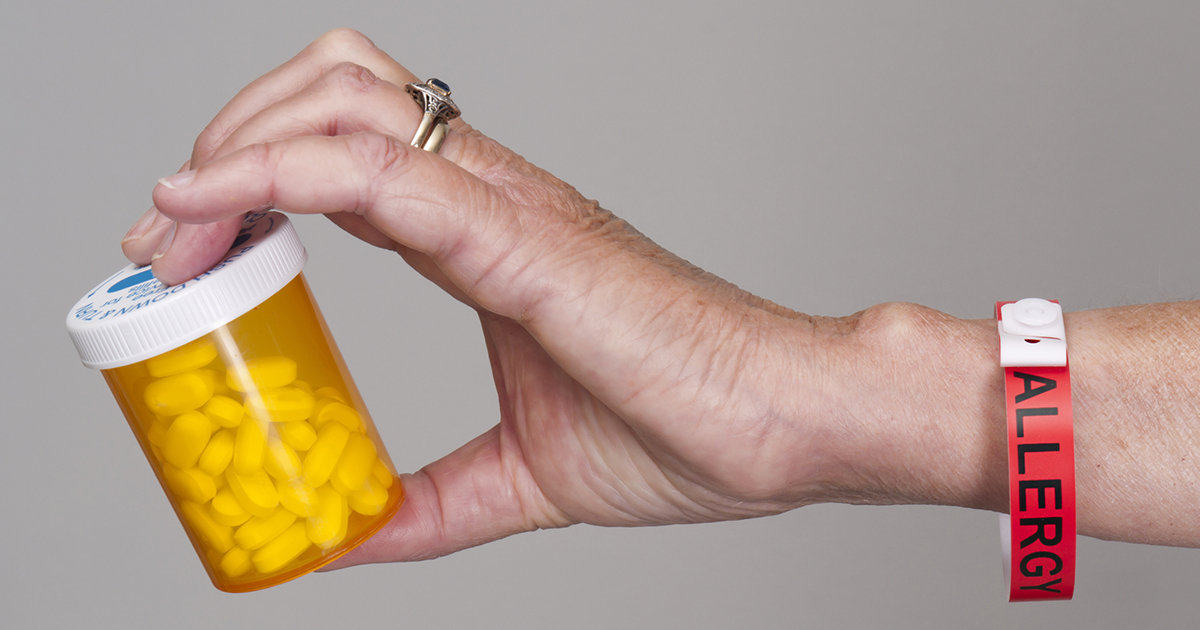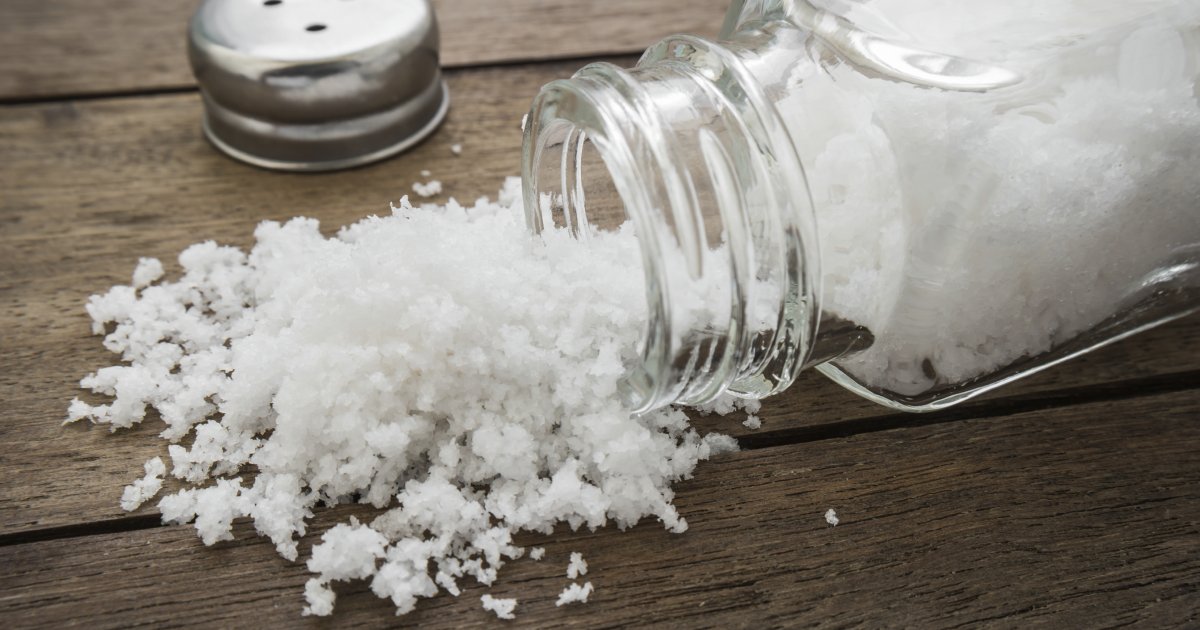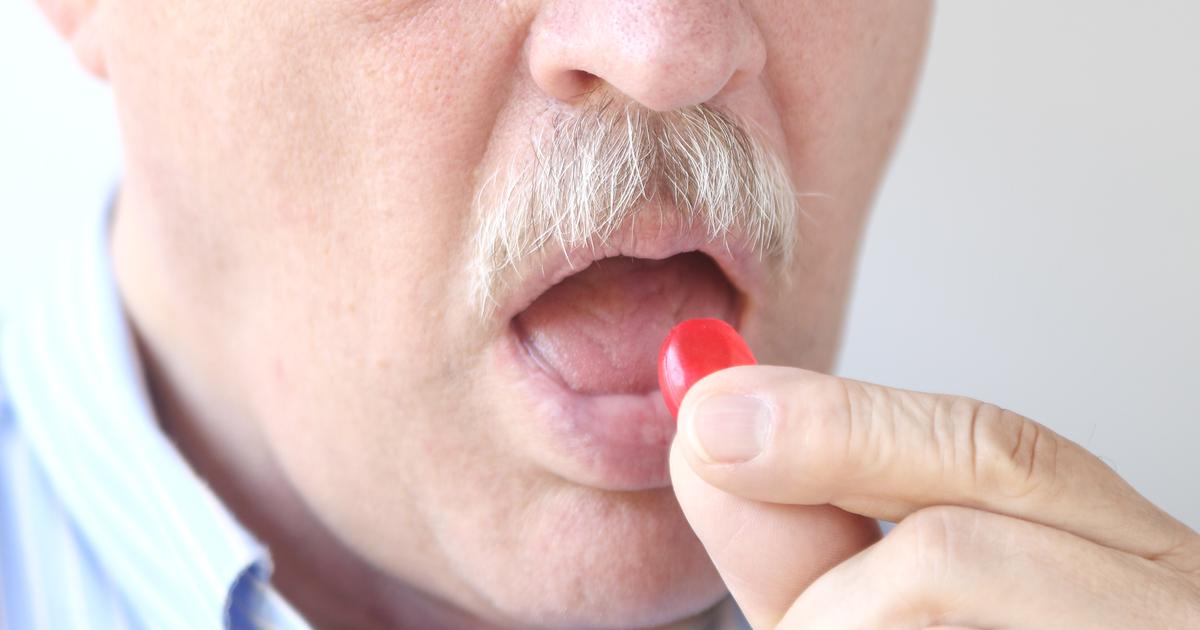How To Effectively Treat A Dry Throat
A dry throat can be quite the uncomfortable thing to deal with. Many affected individuals also experience coughing and difficulty swallowing, and depending on the cause of their dry throat, potentially fever, nausea, vomiting, headaches, and body aches as well. For the most part, the most common causes of a dry throat include mouth breathing, snoring, and the common cold or similar illness. Some may also experience this condition due to allergies, exposure to irritants like air pollution or smoke, sleep apnea, as well as dry air.
Antihistamines

As stated, allergies are a very common cause of dry throat and are usually accompanied by other symptoms such as a stuffy nose, sneezing, itchy and watery eyes, and a cough. These symptoms are generally caused by an immune system reaction to certain elements in the air, such as pollen or pet dander. Antihistamines block the allergic reaction caused by these elements and are a great way to combat dry throat and other symptoms due to allergies. Antihistamines can be purchased over-the-counter but if dry throat and other allergy symptoms are severe a prescription may be obtained from a physician.
Ginger

Due to its spicy taste and sensation, ginger may not be the first product thought of when it comes to finding relief from a dry and sore throat but it has been used for centuries as a treatment for throat ailments. This root herb is not only an anti-inflammatory, which reduces swelling and pain, but also as an antimicrobial, which helps combat current infections and an antioxidant, preventing new infections from forming. It is incredibly helpful for dry throats caused by viral or bacterial illness. For soothing relief, the root (either fresh and sliced or ground) can be steeped into a tea, combined with honey and drank warm. To increase absorption of all the beneficial properties ginger can provide, it is best to squeeze fresh lemon juice into the tea.
Garlic

Garlic is known for its medicinal properties, such as lowering cholesterol and blood pressure and reducing the risk of cancer. It is also a proven remedy for the discomfort of a dry throat. It works as an antiseptic, which can aid in the fighting off illnesses caused by viruses and bacteria. It is most potent in its raw form and most effective for treating dry throat when a clove is crushed between the teeth and sucked on for fifteen minutes. It can also be minced, combined with olive oil and added to vegetables for a healthy, soothing snack, or blended with honey and added to vegetable juice or a smoothie. The most important thing to remember is in order for it to be effective, garlic should be consumed raw, rather than cooked or ground.
Drink Plenty Of Fluids

A dry throat can be an indicator the body is dehydrated and not producing enough saliva to keep the throat and mouth properly lubricated. Generally, dry throat due to dehydration is accompanied by other symptoms such as increased thirst, dark urine, dry mouth, and fatigue. The best way to beat dehydration and cure the resulting dry throat is to drink plenty of fluids. Water is always the best option, but sports drinks and juices also can help increase hydration, as does the consumption of fruits in vegetables. It is best to avoid drinks with caffeine, such as sodas and coffees, as caffeine is a diuretic, which can further dehydrate the body. Experts recommend consuming 15.5 cups of liquid per day for males and 11.5 cups per day for females.
Use A Humidifier

Many individuals complain of having a dry throat during the winter months. As temperatures plummet the air has less moisture and cold, dry air can wreak havoc on the nose and throat, causing dryness, difficulty breathing, and an overall uncomfortable feeling. Increasing the humidity in the air through the use of a humidifier can help to bring some relief. Most humidifiers on the market increase the humidity in a room to a comfortable level of twenty-five to fifty percent, however, there are some humidifiers that have vapor delivery systems that allow steam to be inhaled directly to the throat, lungs and nasal passages, which can be helpful for those individuals suffering from bronchial issues or a cold.
Gargle With Salt Water

Patients with a sore throat are often advised to gargle with salt water. This home remedy is believed to have been created before over-the-counter medications were available, and doctors recommend it as a way to reduce painful swallowing and other symptoms associated with a sore throat. A salt water gargle creates a salty barrier in the throat area, and it draws fluid out of the throat tissues. While gargling with salt water won't cure viral causes of a sore throat, research shows just gargling regularly with plain water could protect against upper respiratory infections. To make a salt water gargle that reduces throat pain, pour an eight-ounce glass of warm water, and add 1/4 to 1/2 of a teaspoon of iodized or table salt. Stir until the salt dissolves, and gargle with the water for at least thirty seconds or as long as can be tolerated. After gargling, spit out the salt water in the sink. Doctors recommend gargling with salt water at least twice a day, and patients can use salt water gargles more often if they wish. Adding a few drops of honey or lemon to a salt water gargle may make the taste more pleasant.
Suck On Lozenges

Sucking on lozenges may help soothe the dryness and pain of a sore throat by lubricating the lining of the throat. Many types of lozenges can be purchased over-the-counter, and they typically contain antibacterials such as amylmetacresol or hexylresorcinol to combat potential bacterial infections that might be present in the throat. Menthol and eucalyptus are popular ingredients in lozenges, and these act as nasal decongestants, providing a cooling sensation that reduces pain. Some lozenges could contain benzocaine, lignocaine hydrochloride, or other anesthetics that numb the throat and alleviate pain. Lozenges with anesthetics are especially helpful for severely sore throats. Lozenges containing non-steroidal anti-inflammatories can also be useful for patients experiencing significant throat pain; these lozenges may require a prescription in some states. While lozenges are safe for use by most, individuals who have asthma, allergies, or cardiovascular issues should ask their physician before using these products.
Use Nasal Sprays

Sore throats are often exacerbated by irritation from postnasal drip. Patients with a sore throat may want to use nasal sprays to reduce this irritation. Saline nasal sprays help provide moisture for the nasal passages, and decongestant nasal sprays with active ingredients such as oxymetazoline and phenylephrine may be beneficial as well. Both of these nasal sprays are available over-the-counter. In general, patients should only use over-the-counter nasal sprays for between three to five days before checking with a doctor. Using these types of nasal sprays continuously for a long period could worsen symptoms. Patients with high blood pressure or prostate issues will need to consult their physician before using a decongestant nasal spray. If over-the-counter nasal sprays don't provide relief, clinicians might choose to prescribe a cortisone-based nasal spray.
Quit Smoking

Many patients who smoke tend to have frequent or chronic sore throats. Smoking exposes the throat to more than seven thousand chemicals, and this can cause throat irritation and lead to conditions such as chronic laryngitis and cancer. Doctors advise that individuals who smoke aim to quit smoking as soon as possible. To help with this, patients can try over-the-counter nicotine gums and patches, and they might also wish to attend a local or online smoking cessation course. Having a support group may make it easier to successfully stop smoking, and patients can ask their healthcare provider for the details of local smoking cessation support groups; many are also available online. These groups enable patients trying to quit smoking to share their stories with other members and to receive advice and encouragement. Prescription treatment options to aid in smoking cessation are available to patients who struggle to quit smoking with behavior modification and over-the-counter options, and patients should ask their doctor about the risks and benefits of each medication to find one that fits their needs.
Get Lots Of Rest

Sleep enhances the function of the body's immune system and allows it to combat the infections that cause a sore throat more effectively. Getting sufficient sleep helps the body maximize the production of infection-fighting antibodies, and this could enable patients to recover more quickly if an infection or illness takes hold. Experts suggest most healthy adults aim for seven to nine hours of sleep each night, and individuals who are sick may want to sleep longer than this. Keeping the bedroom dark and cool and following a relaxing pre-bedtime routine can make it easier to fall asleep. Since it is sometimes difficult to stay asleep with a sore throat, sleep specialists advise patients to place a humidifier in their bedroom at night. This will increase the moisture in the air and soothe the throat, nose, and sinuses. The water in a humidifier should be changed daily, and the tank must be cleaned at least once every three or four days. Some patients find their sore throat symptoms worsen when they lie down in bed, and this occurs due to mucus collection at the back of the throat while lying down. To reduce the amount of mucus that accumulates, it helps to sleep with the head propped up on extra pillows.
